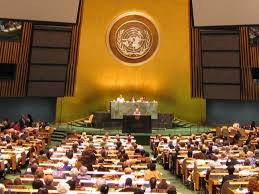
I've been perplexed (and bored) by the torrent of uninformed commentary concerning the "financial crisis" in the United States, so much so that I've been unable to formulate any sort of coherent comments of my own. I was finally moved today to say something by the truly dazzling display of stupidity offered up by Maureen Dowd in her New York Times column of even date. In effect, Dowd accuses the Obama Administration of allowing AIG, that nefarious financial craps table, to shovel money out the 'back door" to Goldman Sachs, other Wall Street "counterparties" and even (gasp!) European banks, such as the Deutsche Bank. Thus, bailout money "intended" for AIG winds up in the hands of outfits with "insider connections" to the Obama Administration or with foreigners.
Well, look: when you were learning to read in school, especially if you had decent teachers, you were taught to "read critically," weren't you? So let's do that with Dowd.
First, the only intelligent thing I have heard anyone say recently about the state of the U.S. financial system is what Prez O himself said: we got into this mess, mostly, through people doing legal things. And when you think about it, that's the most frightening aspect of all. What it means is that the natural, intended consequences of our financial system, for about the last ten years at least (say, from the repeal of the Glass-Steagall Act) have been what we're seeing now. The sorry state of collapse was simply waiting for a big downturn in the value of underlying assets (in this case, the housing market) in order to blow up. And now it has.
It was legal to bundle up mortgages into bond securities which could be sold here and abroad. What was not necessarily foreseen was that the underlying "rationale" for this practice was the presupposition that the housing market could only go up; this supported the practice of dubious loans, since the houses could "always be sold" or "refinanced" when the market was better. Was it fraudulent to sell MBS on the theory that the housing market would continue to go up? It was probably not clear enough to support a 10b-5 action under the Securities & Exchange Act, although many lawyers will try it anyway.
Plus, only the savviest of the insiders saw that minor perturbations within a MBS would sink the whole instrument. Smart guys like John Paulson, who saw that about a 5-6% decline in the value of a MBS would make the whole thing worthless and unmarketable. In retrospect, elementary logic supports his analysis. Say that a group of bundled mortgages of the subprime variety pay on average 8%. With front-end fees and servicing costs, it makes sense that the pass-through to investors (such as big pension funds and foreign banks) would equal about 6% net. If the face value of the bond is premised on a 6% return, then one can see that a fairly small failure rate among the mortgages supporting the bond will result in a return less than this notional rate. When that happens, the bond quickly degrades in value. If, in addition to this factor, the "tranching" and intermixing of MBS has so obscured which bonds are good and which contain many failing mortgages, then the whole class of security becomes suspect, leading to a dodgy market for the things in general.
Which is where we are. Because the buyers of these MBS realized they were entering, to a certain degree, terra incognita, they insured the bonds they purchased. These are the so-called credit default swaps. AIG ran the biggest business in CDS notes. The difficulty here was that the federal government (led by such free marketeers as Ayn Greenspan) did not require that purchasers of CDS notes have an "insurable interest" in the underlying MBS. By analogy, to buy life insurance on a person, one must have some sort of relationship, at the point of purchase, which makes the insured life a matter of personal importance. A spouse, for example. If members of the general public were allowed to place bets on the death or survival of anonymous people to whom they had no direct relationship, we would, among other things, encourage the practice of killing-for-hire in order to improve the "odds." No such requirement existed for CDS instruments. Anyone could bet "pass or not pass" on a MBS bought by someone else. And AIG wanted all the action it could get, since it considered the premiums free money. It certainly did not retain sufficient reserves, you know, in the quadrillion range.
Thus, the "counterparties" that AIG is paying off, such as those suspicious foreigners, include Goldman Sachs, Bank of America, hedge funds, and the Deutsche Bank either as insureds holding MBS or people placing side bets at the CDS craps table. This latter category, while legal, was a yawning loophole which has brought the world's financial system to the brink of disaster.
But it has nothing to do with Maureen Dowd's moronic take on the situation. If you want to declare all the CDS contracts null and void, then a plenary conference of all the world's industrial countries must be convened to sort out all the debits and credits of these "financial weapons of mass destruction," the notional value of which has been pegged at $1.4 quadrillion, which is probably even more money than Timothy Geithner wants to commit.

![]()

![]()

